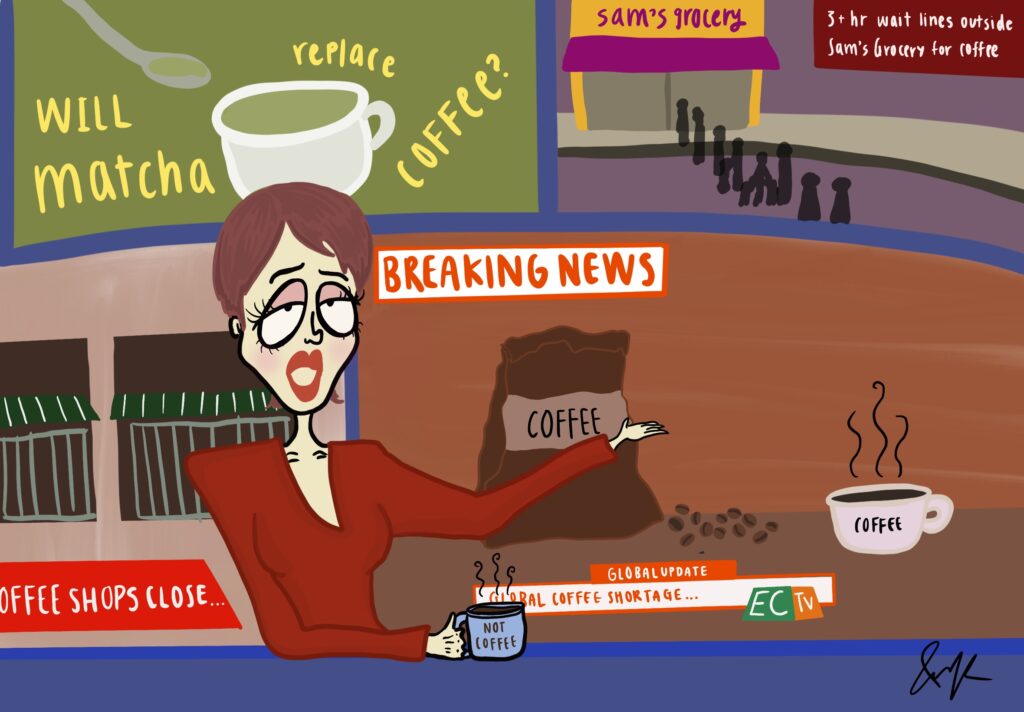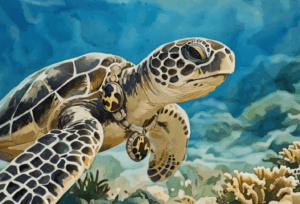
I’m sure you’ve seen many news articles alarming the rapid concerns climate change is bringing, especially in the Arctic and other places that are far from your life. But did you know that a new concern was issued by climate change that may actually affect your daily life?
According to the National Coffee Association, two out of three Americans take a step out of their morning routine to prepare a cup of coffee for themselves. To prepare a cup of coffee though, several steps occur before the moment you take a sip. Even before you pick up a bag of coffee beans from the grocery store, each coffee bean goes through an industrious process, including where the coffee beans came from.
The history of coffee wraps back to dates centuries ago. Originally grown in Ethiopia, the coffee industry has been growing and increasing rapidly; different types of coffee beans, thousands of different kinds of coffee brands, and many innovative uses of coffee.
Because coffee is such a widespread industry, the only way it can possibly be cut short is by affecting the very beginning process of coffee making. Although we never expected this to happen, the concerns and issues are rising. In February of 2024, it was revealed that climate change will reduce the land for growing coffee by 54% by 2100. Already, coffee farmers from Honduras and Ethiopia are expressing their concerns from climate agitation. Consequently resulting in calling the U.K. government to help by canceling historic debts to pay for the damage it has caused on the coffee industry and the loss of its lands.
Now you may ask how actually does climate change affect the coffee industry and eventually cut out the resources. Well, it’s a fairly simple question to answer. Due to the rising temperatures and unstable weather patterns caused by climate change, it will shrink the world’s land appropriate for growing coffee by 54.5%.
Although Ethiopia was where coffee originated from, almost more than half the coffee produced is from Brazil and Vietnam, the two countries both greatly exposed to the vulnerability to climate change. On 7 May 2023, Vietnam reached its highest temperature ever recorded at 44.2 degrees Celsius, along with its neighboring countries also experiencing these new extreme temperature changes.
With the continuous and rapid increase in temperatures due to climate change in many countries that produce coffee beans, the coffee industry is at great risk.
Quickly, can you think of a time you came across an advertisement or a news item on tv, explaining and promoting the different ways you can do to help prevent climate change? Although it may be true that you watched it, I assume less than half of you attempted to try and make a change. This isn’t because you are lazy or you want to ruin our world, instead, you probably had the thought, “oh, just one person doing this won’t do anything” or “this is not related to me so I don’t have to care about it.” This is a common answer most people would have thought of because of the way you take account of these kinds of news. However, once these effects start to relate to you more, you start to change the way you think of them. For instance, the cut on the coffee industry!
Moreover, this issue and concern on the recent coffee industry isn’t the only example of the effects due to climate change. Although there are so many to make note of, it was just a tiny case that could possibly adjust at least a tiny bit of our thought process about our world. By reading this article, we hope you feel the importance and the desperate help we need to prevent climate change from happening since it can affect us as it slowly leaks into our daily lives.
The views and opinions expressed are those of the authors and do not necessarily reflect nor represent the Earth Chronicles and its editorial board.




